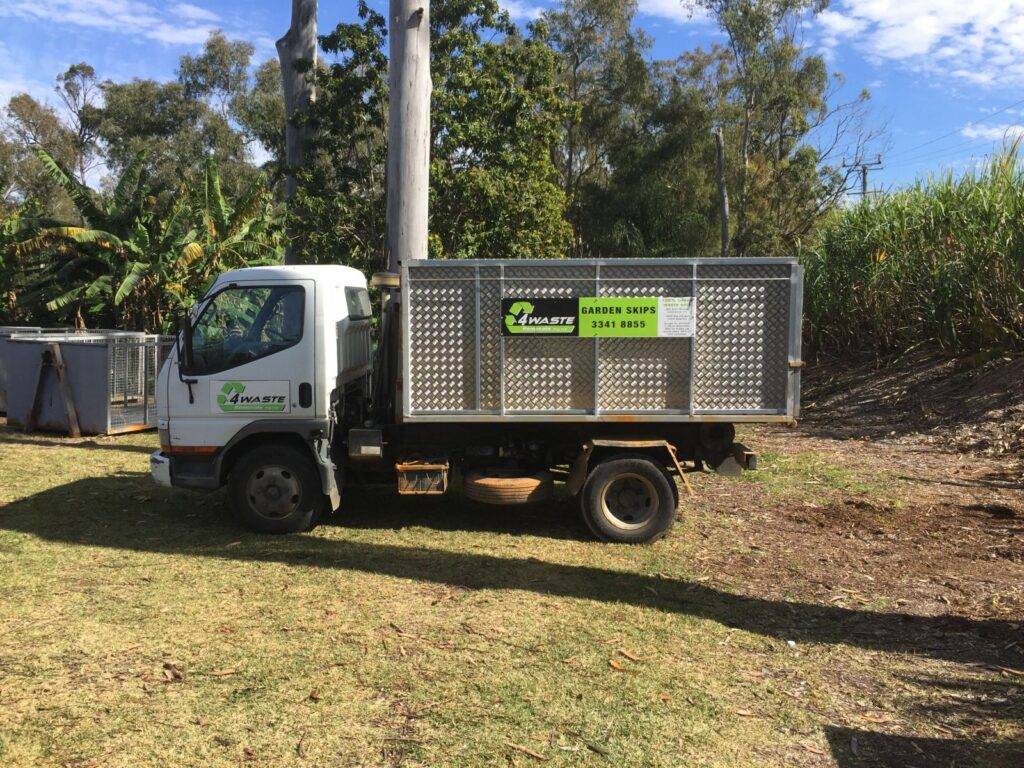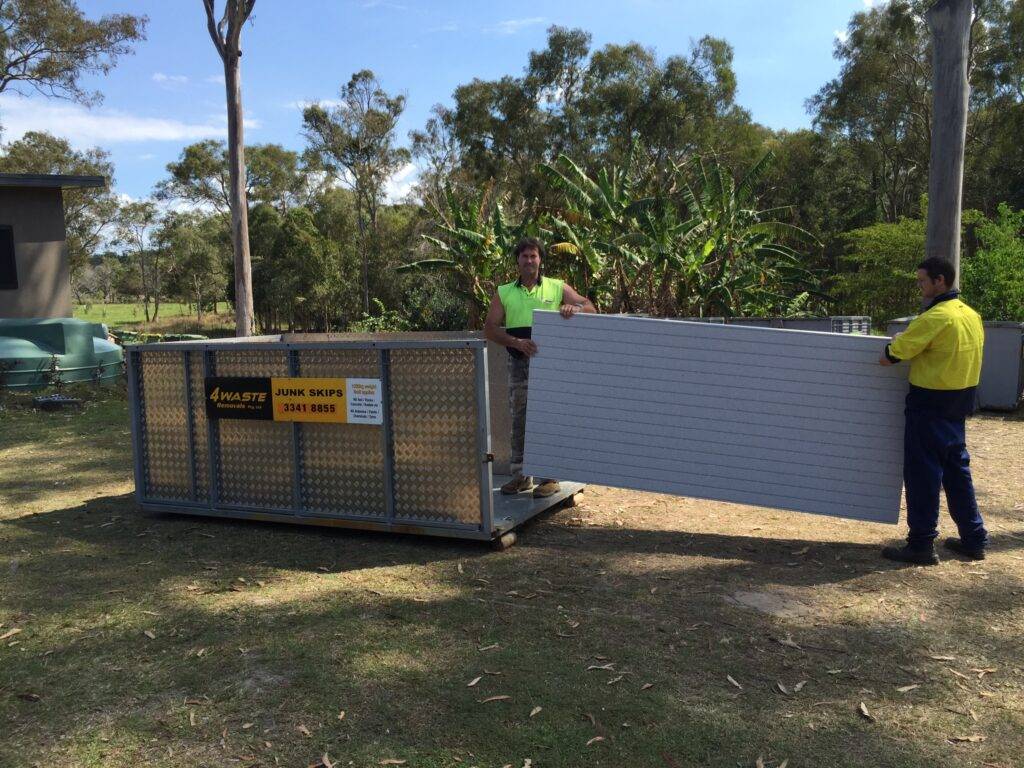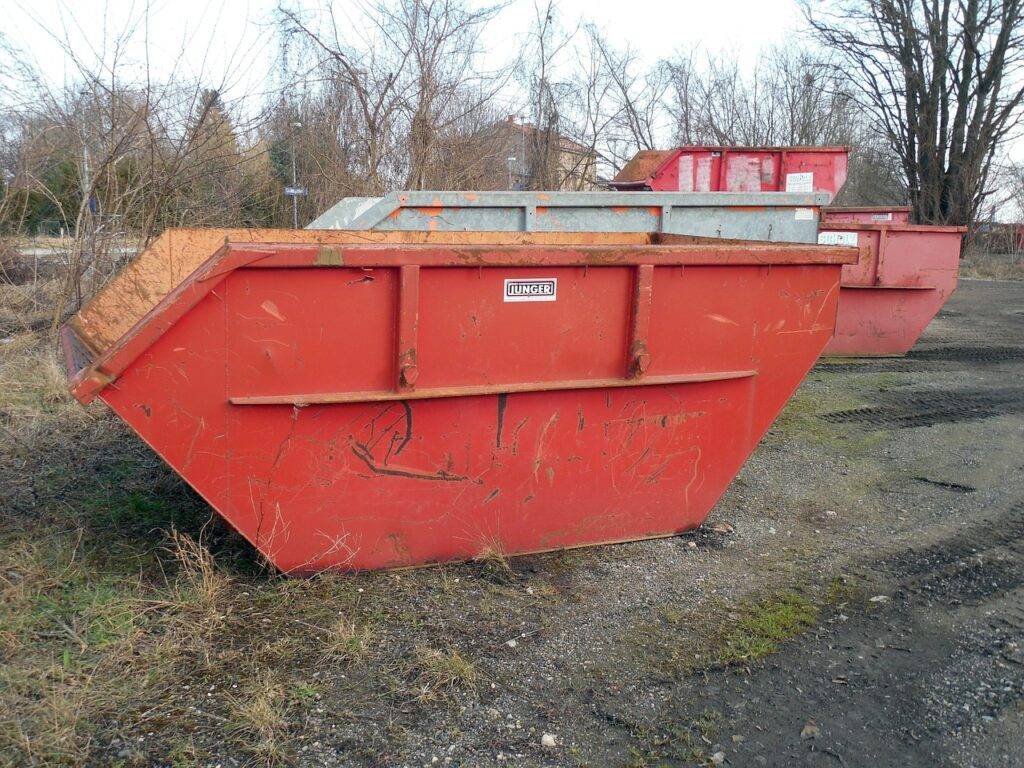
If you know anything about skips in Brisbane, or skips anywhere for that matter, then you will understand that not all skips are the same. Sure, many are the same, but not all. You have traditional skip bins, which are those commonly seen at construction sites, and you also have less conventional skips in Brisbane – those that are catered more to residential use than construction use.
At 4 Waste Walk-In Skip Bins, our junk skip bins and garden skip bins fall under the latter category. We put a lot of consideration into the design, as well as the pricing methodology of our skips, to create and provide unique walk-in skips in Brisbane.
Today, we thought it would be a good time to put the two types of skips in Brisbane head to head, so you can decide which is better for your needs and which offers the best value for money.
Table of Contents
Walk-In Skips

As the name suggests, walk-in skips in Brisbane are a unique type of skip bin that allows for walk-in access. Brisbane has a few providers, but 4 Waste was the pioneer.
Walk-in skip bins are designed to provide easy access to facilitate loading. They feature a rear swing door that can be opened to allow for walk-in, wheel-in or trolley-in access. This handy feature makes loading old mattresses and furniture very convenient.
They are also usually smaller than traditional skips and sometimes referred to as mini skips. Walk-in skips are ideal for residential and small business/commercial use. Permitted waste includes many everyday household items such as white goods, appliances, electronics, furniture, sporting equipment, mattresses, sinks, baths, BBQs and garden waste.
In terms of price, Walk-in skips are cheaper than traditional skips in Brisbane. And while some providers offer a fixed hire price, we price our skips according to the fill level. This means you will never hire a walk-in skip bin from us that is too big or too small. Like Goldilocks, it will always be “just right”.
Traditional Skips

Tradition skips in Brisbane are designed to cater to bulky and heavy waste types, which is why they are so commonly used on building sites. As such, they are designed to contain such waste in a container-like design that comprises four walls. The rear wall is usually slanted and lower for access, but it does not open and does not allow for walk-in access.
Tradition skips permit large and heavy waste types, such as you will find at a construction site. Permitted materials include the likes of concrete, bricks, timber, plaster, and all waste permitted in walk-in skips.
Price-wise, traditional skips are generally a little more expensive than walk-in skips. They are also fixed in price. Meaning you pay based on the size of the skip you hire, regardless of whether you only half-fill it. This can be problematic if you order the wrong size – if it’s too big, you pay for more than you need. But if it’s too small, you end up paying a lot more for a second skip.
Conclusion
There is undoubtedly a market for both walk-in skips and traditional skips. Still, more often than not, they are different markets. Walk-in skips are designed to cater to residential needs; they are smaller in size and do not permit heavy building materials. On the other hand, traditional skip bins are ideal for construction sites and have fewer limitations on allowed waste types.
Both walk-in skips and traditional skips in Brisbane offer great value for money. However, traditional skips are priced per skip based on the size, while our walk-in skips are priced by fill level rather than the actual skip size.
If you think a walk-in skip bin is better suited to your needs, then don’t delay. Pick up the phone and call our team on 0413 333 330 to place an order. Alternatively, you may hire a skip online using the following form.
